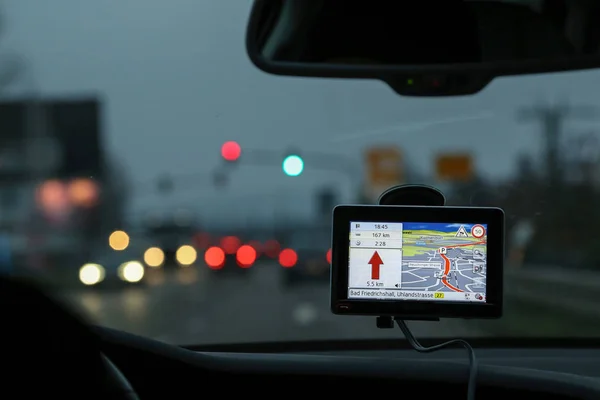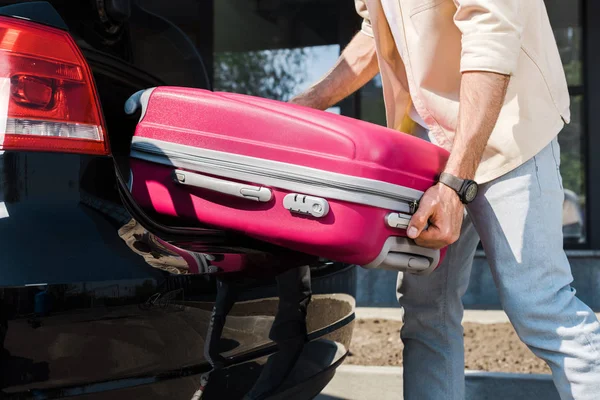Renting a car should be straightforward: pick up the keys, drive away, and return them when you’re done. Unfortunately, the car rental industry has turned what seems like a simple transaction into a maze of unexpected charges that can easily double or even triple your initial quote. These sneaky fees often don’t show up until you’re standing at the counter with your luggage in hand, feeling pressured to accept whatever terms they throw at you.
Think of car rental pricing like an iceberg – the advertised rate is just the tip floating above water, while a massive chunk of additional costs lurks beneath the surface. Here’s a list of 13 hidden fees that rental companies use to inflate your bill, along with how to spot and avoid them.
Underage Driver Fee

Most rental companies slap an extra daily charge on drivers under 25, treating younger renters like they’re inherently riskier behind the wheel. This fee typically ranges from $15 to $35 per day, which can add hundreds of dollars to a week-long rental.
The logic behind this surcharge is based on insurance statistics showing that younger drivers have higher accident rates. Some companies won’t even rent to drivers under 21, while others extend reduced fees until age 27.
Additional Driver Fee

Want your spouse or travel companion to share driving duties? That convenience will cost you extra, usually between $10 to $15 per day for each additional authorized driver. This fee applies even if the extra driver is your married partner, which seems particularly unfair since you’re traveling together anyway.
The rental company treats each additional driver as a separate liability, requiring extra paperwork and background checks. Smart travelers often work around this by ensuring the primary renter does all the driving, though this defeats the purpose of having a co-pilot for long trips.
Like Travel Pug’s content? Follow us on MSN.
GPS Navigation System

Rental companies love pushing their GPS units at $10 to $15 per day, even though most people carry smartphones with perfectly good navigation apps. These bulky devices often have outdated maps and clunky interfaces that make your phone’s GPS look like space-age technology.
The daily GPS fee can easily add $70 to $105 to a week-long rental, money that’s better spent on actual vacation activities. Before accepting their navigation system, remember that your phone likely has offline map capabilities and costs nothing extra to use.
Child Safety Seat Rental

Traveling families face another daily fee for car seats, typically ranging from $8 to $15 per day per seat. While safety is paramount, these rental seats are often worn, difficult to install properly, and may not meet your specific safety preferences.
A week-long rental can cost $56 to $105 per seat, making it cheaper to buy a new car seat at your destination and donate it before leaving. Many experienced traveling parents ship their own car seats ahead or check them as free baggage on flights.
Tank Refueling Charges

The refueling scam ranks among the most expensive rental car traps, charging $8 to $12 per gallon for gas when you return the car without a full tank. Rental companies often make refueling sound convenient by offering prepaid fuel options, but these typically cost 20-30% more than local gas station prices.
They count on customers either forgetting to fill up or running out of time before their flight. The smart move involves locating a gas station within a few miles of the rental return location and filling up right before dropping off the car.
Like Travel Pug’s content? Follow us on MSN.
Cleaning Fees

Returning a car that isn’t spotless can trigger cleaning fees ranging from $25 for minor tidying to $200 for deep cleaning services. These charges apply to everything from muddy floor mats to food crumbs between seats.
Rental companies have become increasingly aggressive about cleanliness standards, sometimes charging cleaning fees for normal wear that wouldn’t bother most car owners. Taking photos of the car’s condition when you pick it up provides evidence if disputes arise later.
Toll Road Charges

Many rental cars come equipped with electronic toll transponders that automatically charge your credit card for toll usage, plus hefty administrative fees on top. These convenience fees can add $3 to $5 per day, whether you use toll roads or not, plus the actual toll costs.
Some companies charge a flat daily rate for transponder access, while others bill per toll transaction with a markup. Savvy renters either avoid toll roads entirely or pay cash at toll booths when possible.
Airport Concession Fees

Picking up your rental at the airport triggers additional taxes and concession fees that don’t apply to off-airport locations. These charges, typically 10-20% of your rental cost, cover the rental company’s airport operating expenses and facility fees.
While airport pickup offers convenience, the extra costs can be substantial on longer rentals. Off-airport locations often provide shuttle service and significantly lower prices, making the slight inconvenience worthwhile for budget-conscious travelers.
Like Travel Pug’s content? Follow us on MSN.
Insurance Upgrade Pressure

Rental agents excel at selling expensive insurance upgrades through fear tactics and confusing explanations of your existing coverage. These daily insurance fees range from $15 to $40 and often duplicate protection you already have through your personal auto insurance or credit card benefits.
The collision damage waiver alone can cost $20 per day, adding $140 to a week-long rental. Before traveling, check with your insurance company and credit card provider to understand your existing rental car coverage.
Equipment Rental Fees

Beyond GPS devices, rental companies offer various equipment add-ons like ski racks, bike carriers, and roadside assistance packages at premium daily rates. These items often cost $10 to $20 per day, making a simple bike rack rental more expensive than buying one outright.
The equipment is frequently old, difficult to use, and may not fit your specific needs anyway. Planning ahead and bringing your own equipment or buying locally often proves more economical and reliable.
Early Return Penalties

Some rental agreements include penalties for returning the car significantly earlier than planned, essentially punishing you for changing your travel schedule. These fees can range from one day’s rental cost to a percentage of the total unused rental period.
The logic supposedly covers the company’s lost revenue opportunity, though it seems unfair to penalize customers for not using a service they’ve already paid for. Reading the fine print carefully before signing helps identify these potential charges.
Like Travel Pug’s content? Follow us on MSN.
Late Return Fees

On the flip side, returning your rental car even an hour late can trigger full additional day charges, turning a minor delay into a major expense. Grace periods vary by company, with some offering one-hour buffers while others start charging immediately after your scheduled return time.
These fees typically equal a full day’s rental rate, making a brief delay surprisingly costly. Planning your return with an extra time buffer and understanding your rental company’s specific late return policy prevents these unwelcome surprises.
One-Way Drop-Off Charges

Dropping off your rental car in a different city from where you picked it up often incurs substantial one-way fees ranging from $50 to several hundred dollars. These charges supposedly cover the cost of repositioning vehicles, though they sometimes seem disproportionate to the actual logistics involved.
The fees vary dramatically based on pickup and drop-off locations, with popular routes costing less than remote destinations. Some rental companies waive one-way fees during certain seasons or for specific routes, making it worth shopping around.
The Real Cost of Convenience

Today’s car rental industry operates much like airlines did before fee transparency regulations – advertising low base prices while generating profits through add-on charges. These hidden fees transform a seemingly affordable $30-per-day rental into a $70-per-day expense, explaining why many travelers feel blindsided at the rental counter.
Understanding these common charges ahead of time puts you in control of your rental experience and budget. The key lies in reading contracts carefully, declining unnecessary add-ons, and choosing rental companies that prioritize transparent pricing over fee-based profit models.
Like Travel Pug’s content? Follow us on MSN.
More from Travel Pug

- 20 Best Beach Towns in the Carolinas
- 13 Destinations Where Tourists Regularly Regret Their Trip
- 20 Things You Actually Get in First Class
- 20 Small Airports With Aviation Museums
- 20 Places in the U.S. That Are Perfect for a Reset Trip
Like Travel Pug’s content? Follow us on MSN.
